‘Why would you want to ghettoise someone’s culture?’ This was the charge levied at me when I told friends that I was writing an article on why I don’t think, as a rule of thumb, fantasy novels are worthwhile. The idea came from a discussion I had with esteemed writer of The Acquirers Stephen Flockton; the topic was ‘Why won’t you read and latterly watch Game of Thrones?’ with my answer being ‘Not only do I not give a fuck about any of that fantasy nonsense, I’m not sure anyone should’. Now this statement takes a lot of qualifying and I’m going to try and get my caveats and definitions out in one paragraph.
Firstly, I’m really not trying to ghettoise anyone’s culture, sure you can all read what you want; free of judgement about your personal character. Secondly, you are free to purchase and consume whatever you like; you are adults for god sake, look at you paying your taxes and presumably your broadband bill. Thirdly, I’ve had this discussion (and in most cases heated argument) with many a fantasy fan and we all come up across the same problem; how to define a fantasy novel? And I grant you it is a hell of a task, it is the genre that has launched a thousand ships; is it ‘heroic fantasy’, ‘epic fantasy’, ‘high fantasy’, ‘dark fantasy’, ‘gluten-free fantasy’? I’ve only got the space of this article, so let me be insufficiently blunt in coining the overall classification: ‘Elfy-wizardy shit’. I don’t mean anything that involves a magical or supernatural element I mean the entire fucking wall of your local Waterstones that is devoted to sword-wielding, bronzeage-darkage-medieval mythic quests, battles on the side of good against an a-moral, decidedly evil foe (the ratios always being 2 Goliaths for every 1 David). ‘Well what is so wrong with wizardy-elfy shit or whatever you’ve reduced it too?’ I hear you ask. Well, nothing, if we had infinity to read all the books; but alas I believe we must all choose a little more wisely.
The amount of time we have between now and death is finite and ever receding (shhh physicists, not now) and we must choose wisely how we spend it and to do so we all make value judgements. For my money, with the little time left, I’ve decided not to bother with fantasy novels and here is why:
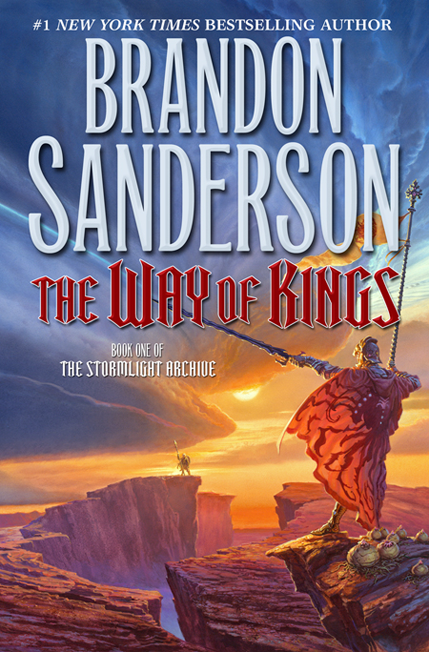 1. The motherfuckers are too long. The fantastic Megan Leigh wrote a wonderful piece about fantasy and sci-fi worlds where she mentions a fantasy novel The Way of Kings which weighs in at a mammoth 1105 pages. Something I’ve noticed about the pedlars of elfy-wizardy shit is they seem to adopt the attitude of ‘why use one word when several pages of bulky exposition will do’? Why let your reader be part of the world building experiencing, take every slither of subtext away from them, choke them with a thick fog of detail; lest they deviate from your version of what your ‘world’ should look like. I’m sure there is a whole canon of writers that contributed to this; but I’m going to put the blame squarely at Tolkien. If Fantasy is the genre that launched a thousand ships, then Tolkien is our Helen of Troy; the fucker. This brings me to my second point.
1. The motherfuckers are too long. The fantastic Megan Leigh wrote a wonderful piece about fantasy and sci-fi worlds where she mentions a fantasy novel The Way of Kings which weighs in at a mammoth 1105 pages. Something I’ve noticed about the pedlars of elfy-wizardy shit is they seem to adopt the attitude of ‘why use one word when several pages of bulky exposition will do’? Why let your reader be part of the world building experiencing, take every slither of subtext away from them, choke them with a thick fog of detail; lest they deviate from your version of what your ‘world’ should look like. I’m sure there is a whole canon of writers that contributed to this; but I’m going to put the blame squarely at Tolkien. If Fantasy is the genre that launched a thousand ships, then Tolkien is our Helen of Troy; the fucker. This brings me to my second point.
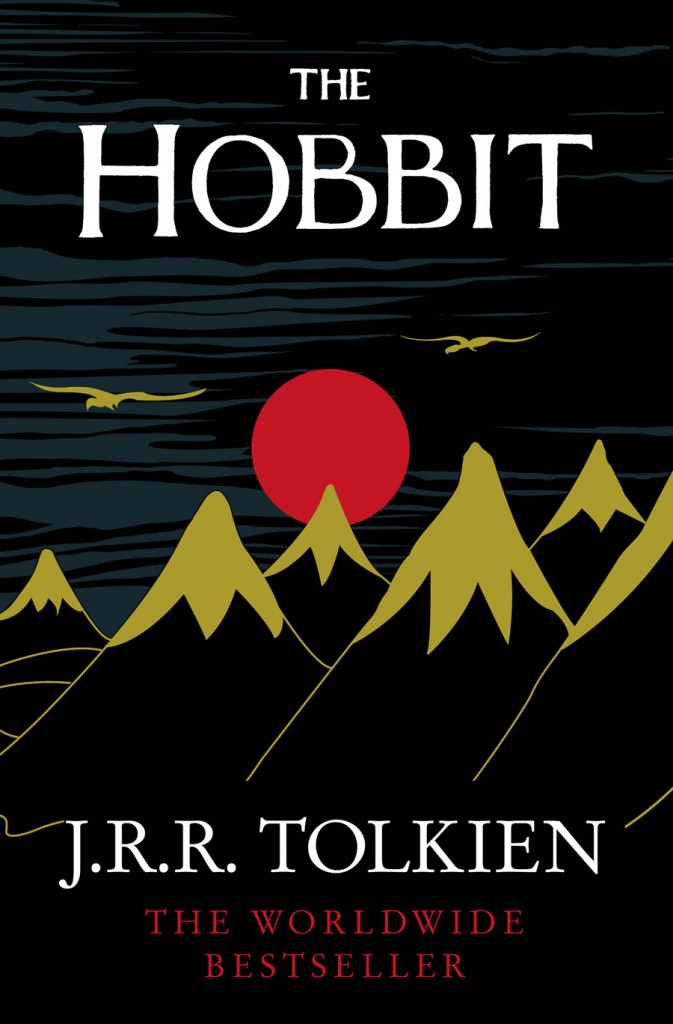 2. They are, from what I can see, stylistically similar/identical. The proportions are fantastically huge and the stakes are never short of an ever-extending Reich of darkness and evil; if not that then utter annihilation of the world/reality/universe (delete as appropriate). There is a hero(s), which unless you’re not familiar with the world of favourable protagonists, is you. You are the protagonist, you heroic son of a bitch you. Your role as a commander of the light is to rage against the dichotomous darkness. Led by some dude (almost always a dude) who is hell bent on ruling all of ‘insert world here’ because…well because…he is evil, of course. Say nothing of his comprehensive universal healthcare plan and introducing a set of legislative measures to ensure the rights of the common man with hope of putting an end to abject serfdom. He’s evil because the writer says so, and you’re good because you want to be and the odds are against you. But don’t worry; you’ve still got 800 pages to turn around your perilous circumstance and save the day, apparently. Now don’t get me wrong, history is littered with despotic malevolent rulers and we all wish we could depose them in a fiery blaze of epic glory; but how many times do you want to re-read that fantasy in cosmetically different combinations? Twice, tops. But I get it, you’ve got slightly less than £10 burning a hole in your pocket and you want to see things in your mind’s eye that will take you to a place not of the world that we currently inhabit? Well, take the four or five steps to your left/right to the long-suffering sibling of the fantasy novel, the science fiction section. Where writers consistently find ingenious ways of imagining the future that have fed discussions, influenced our lives and plague our thoughts. Some of the finest examples:
2. They are, from what I can see, stylistically similar/identical. The proportions are fantastically huge and the stakes are never short of an ever-extending Reich of darkness and evil; if not that then utter annihilation of the world/reality/universe (delete as appropriate). There is a hero(s), which unless you’re not familiar with the world of favourable protagonists, is you. You are the protagonist, you heroic son of a bitch you. Your role as a commander of the light is to rage against the dichotomous darkness. Led by some dude (almost always a dude) who is hell bent on ruling all of ‘insert world here’ because…well because…he is evil, of course. Say nothing of his comprehensive universal healthcare plan and introducing a set of legislative measures to ensure the rights of the common man with hope of putting an end to abject serfdom. He’s evil because the writer says so, and you’re good because you want to be and the odds are against you. But don’t worry; you’ve still got 800 pages to turn around your perilous circumstance and save the day, apparently. Now don’t get me wrong, history is littered with despotic malevolent rulers and we all wish we could depose them in a fiery blaze of epic glory; but how many times do you want to re-read that fantasy in cosmetically different combinations? Twice, tops. But I get it, you’ve got slightly less than £10 burning a hole in your pocket and you want to see things in your mind’s eye that will take you to a place not of the world that we currently inhabit? Well, take the four or five steps to your left/right to the long-suffering sibling of the fantasy novel, the science fiction section. Where writers consistently find ingenious ways of imagining the future that have fed discussions, influenced our lives and plague our thoughts. Some of the finest examples:
- 20,000 Leagues Under the Sea by Jules Verne
- Brave New World by Aldous Huxley
- Fahrenheit 451 by Ray Bradbury
- 2001: A Space Odyssey by Arthur C. Clarke
- War of the Worlds by H.G Wells
- Frankenstein by Mary Shelley
- Handmaid’s Tale by Margaret Atwood
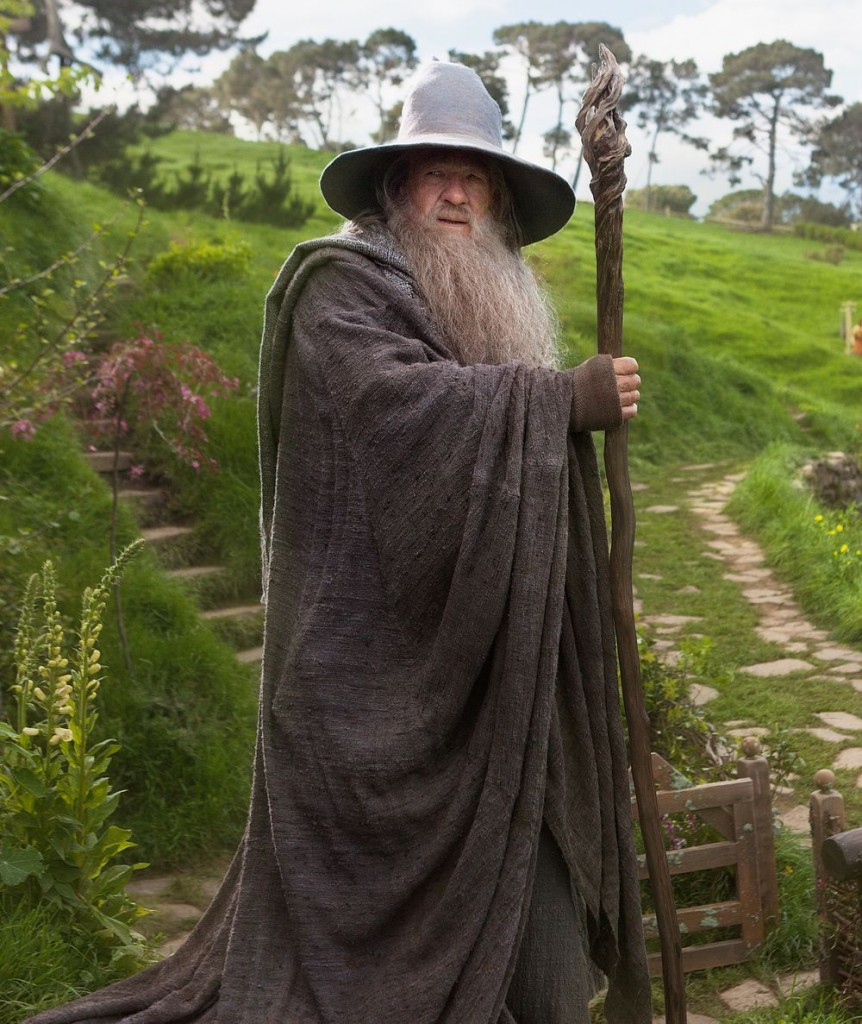 3. They don’t really say anything. If I can be at most optimistic and ignore the morass of Tolkien-like greyness, the accompanying films/comics/toys/t-shirts; and take these novels as an expression of art, a soul (one of our brothers and sisters) has sat earnestly at a typewriter, macbook, or stone tablet and tried to create something beautiful (?), numinous (?), transcendental (?), explorative (?), expository (?). Or are they simply self-serving fantasies designed to pull you slavishly from one page to the next never really having to contemplate or answer any hard questions, never unseating you wholly from the nook you’ve carved out for yourself, never really displeasing you beyond the same feeling you might get when McDonald’s has run out of Big Macs because let’s face it you can just squeeze two normal cheeseburgers together and squint.
3. They don’t really say anything. If I can be at most optimistic and ignore the morass of Tolkien-like greyness, the accompanying films/comics/toys/t-shirts; and take these novels as an expression of art, a soul (one of our brothers and sisters) has sat earnestly at a typewriter, macbook, or stone tablet and tried to create something beautiful (?), numinous (?), transcendental (?), explorative (?), expository (?). Or are they simply self-serving fantasies designed to pull you slavishly from one page to the next never really having to contemplate or answer any hard questions, never unseating you wholly from the nook you’ve carved out for yourself, never really displeasing you beyond the same feeling you might get when McDonald’s has run out of Big Macs because let’s face it you can just squeeze two normal cheeseburgers together and squint.
Now the thing about the points made above is that they are pretty much true for a lot of genres in as much as large scale publishing houses create lists based on an almost algorithmic pattern; based on consumption habits and selling patterns. Nobody seems to want to break the mould for the most part, neither publisher nor bookseller nor reader alike. So if I can’t convince you not to read these things (and I’m not even sure I’m trying to do that), I’d like those elfy-wizardy purveyors among you to chuck in a curve ball every once in a while. Read something in a section you usually avoid, like the translated fiction table or even the poetry corner? How about the army of self-published authors that would not be picked up so easily by publisher or lit agent. There are a great many people doing a great many things and none of us should get stymied in 1105 pages of poorly written tomes that turn out to be good yarns (Sorry Ms Megan Leigh).
So, that descended into a didactic rant a little more quickly than I might have hoped; my stupid veil is always slipping. But in conclusion, life is far, far too short for fantasy novels.
 Pop Verse Pop Culture Universe
Pop Verse Pop Culture Universe
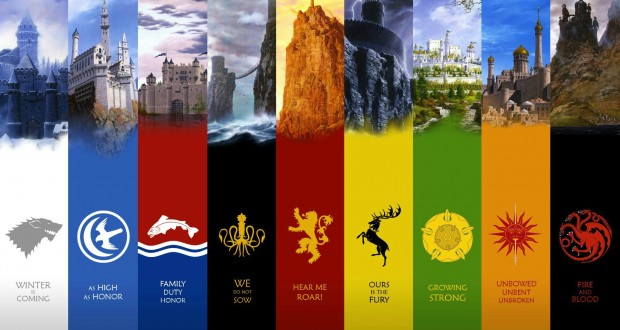

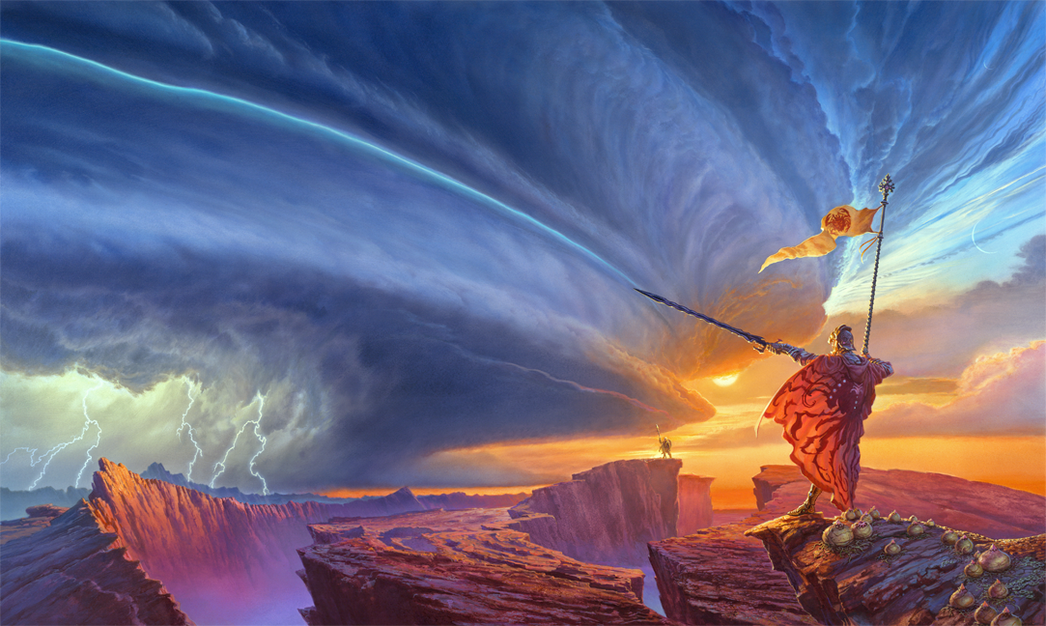
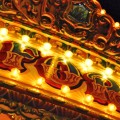
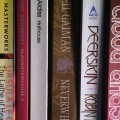
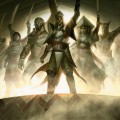

Great rant – absolutely couldn’t agree more…but i also think exactly the same about Science Fiction, but shhh….don’t tell Megan that!
Thank you. I promise not to tell Megan; but I’m pretty sure she doesn’t read these things anyway.
Sorry to disappoint you… but I read them all…
Brilliant delivery, Nikul…I can imagine you are, right at this very minute, tucking into some elf-wizardry-shit. Just to prove that you are open-minded….
Thank you very much Jonathan. I can assure you there is no wizardy-elfy-shit anywhere in my house at the moment; I’m far too busy looking at this recently painted patch of wall. I’m told it will dry at any point – oh the excitement.
People really need to have a more open mind. There exist great fantasy beyond the clichéness of Tolkien and/or all the people mimicking him and trying way too hard for their stories to be so “epic.”
Oh you can’t just leave that hanging out there; I’m going to have to press you for some recommendations.
Brandon Sanderson, “Mistborn.” Robertson’s Dante Galand books. Butcher’s Dresden Files (haven’t read that series, but I hear folks like it.)
Stuff like this article makes me want to write my own fantasy book to prove you all wrong… but meh. I feel like I’m just being really arrogant at the same time. You probably hear it every time. Some moron trying to be different, ends-up being more of the same, acts like a jerk because they get emo about the criticisms, etc.
Everyone wants to be the next Tolkiens and J.K. Rowling I suppose and I always really had dreams about it but… meh. This article just confirms that I’m just being stupid and wishywashy.
You bring up some very good points and criticisms and I’m in agreement wholeheartedly. But it also just makes me too fearful of trying my own. I look at Dresden files, Erikson’s works, and others. I just shake my head at how awful they are. I’d rather not become yet another moron.
Thanks for reading Jack. To be honest with an attitude like that you certainly could revolutionise the genre and get me interested. You just have to keep firmly within your mind’s eye how much you don’t want to be like the flock. Prove me wrong.
Life is too short to give a fuck about your opinion.
A) I think you are absolutely right, BUT:
B) You have clearly never read anything by Terry Pratchett. Read ‘Night Watch’ and tell me if it has any of the problems you outlined above. Don’t bother try convince me that it doesn’t “say” anything 🙂
(I was serious about you being absolutely right. The vast majority of ‘epic’ ‘heroic’ ‘high’ fantasy – wizardy-elfy shit – pretty much amounts to a 10,000 page ego-wank for most authors. I just think it’s always important to remember that generalizations are almost always wrong [generalization much?] and I can’t resist a chance to say “Oh you think you know fantasy? Well my friend, give ‘Night Watch’ a try!”)
Life’s too short to waste writing up why other people interests don’t interest you. Yet here we are.
Good article. I myself enjoy a bit of elfy-wizardy-shit every so often, but it’s so difficult to choose any, when all of them are 50-book series, each 10K pages long. I’d read a trilogy or something… Hmm, maybe I should check out Bujold’s fantasy. She’s a hell of a sci-fi author, that’s certain.
Also, as Harry noted above, try Pratchett (and by “try”, I mean “compulsively read everything from him”), though his stuff isn’t elfy-wizardy as much as a parody of the elfy-wizardy things, that subtly satirises society. Pratchett <3.
Sooo… what about fantasy that involves neither elves, nor wizards? I'm writing a novel at the moment (no, I'm not a writer), and it's fantasy-ish… but lacks magic, mystical races and/or creatures, and I've not got a villainy Dark Lord Hitler as well. Is this good? 😛
As a Fantasy and Science Fiction fan, I have to agree with what you’ve said because it’s true for a good amount of Fantasy novels. I do read some of them, but I do look for stories that don’t fit the norm that most popular looks seem to do.
That’s why I’ve been holding off on GOT and might just audiobook the series instead. I thought, “Why read it now when I could read 3 or 4 novels for every one in the series?”. Plus audiobooks are faster. I just prefer to read in most instances.
A lot of the points you made are the reason why in my Fantasy novel that I’m writing, I’m focusing more on the characters and only tell you parts of the world that you need to know. If the reader wants encyclopedic knowledge, they could just read a novel devoted to the lore that should I ever write one.
I make sure to avoid as many cliches people have seen 100 times and make sure that the story feels like it’s really mine, this is why I’m making my own races. I was never that big a fan of Tolkien. I do like The Hobbit and The Lords of the Rings, I think they’re good books, but not the best out there.
If I ever remember about this article when I finally finish my first novel (editing is a lot of work and college gets in the way), I’ll send it your way and see if I end up satisfying you. If you don’t like it, that’ll be fine. If you have the time and interest, check out the Castle books by Steph Swainston, they’re not the same as every Fantasy novel out there and are worth a look.
Here’s where things get ridiculous. I totally agree that fantasy novels are too long. I first came to this conclusion upon realizing that “Lord of Chaos” had a 150-page prologue. No thanks. When your prologue is half of a “Tripod Trilogy” installment, there is a problem. So, I’ve intentionally written my debut fantasy novel as short as I could make it.
Only to realize that the industry WANTS and EXPECTS door-stoppers. Sigh. Now to find 20,000 words to make my book “marketable.” Ah well. At least there’s always RPG writing!
The same could be said of police procedural series, movies having reboots and basically anything under the sun.
Hey, you still get comments for this rant after years, so why shouldn’t I add one. Beware, it’s lengthy 🙂
I personally have a contrary opinion to what you are argueing towards. Because… I LOVE the exposition and the worldbuilding and everything. My personal pet peeve of many average fantasy worlds is that they just throw in the generic features of a Fantasy world, but don’t really make the conditions of their world have any effects on how the characters think and act.
The reason why A Song of Ice and Fire initially bored me was actually, that despite being such a doorstopper, it actually belongs to those Fantasy novels who also focus a lot on the character’s development and don’t draw a fantasy world that is intrinsically about the characters (by prophecy and stuff) but where the characters wouldn’t necessarily be a big deal if they didn’t do some work for it, which makes all of GRRM’s characters quite lucky for the world they live in and a bunch of other issues (well, I don’t think the books are totally perfect. But they’re of the best I’ve read in my life.).
The Lord of the Rings characters are on the other end of the scale in that, they actually are more distinct characters in the movies than in the books, where they are a sheet of papercuts because Tolkien (imho). He does give Frodo suffering, but written in a rather dry style, that didn’t really make me feel with him.
Only with time, as things get more and more connected and you see how the small details actually have some meaning and contribute to the story, even if you could tell the story without them. You need to reread the books a couple of times of have an superhumanly good memory for that, might be though. I personally like to learn about the world in which the characters live in and thus also understand more, which conditions make the characters act like they act.
However, and that’s my point, I actually like the Silmarillion most, more than the Hobbit or the Lord of the Rings. It’s longer than the Hobbit, shorter than the Lord of the Rings and consists of 98% worldbuilding and that’s why I like it: It contains what Tolkien was good at, which is constructing Elven history and using bible language and not storytelling -which Tolkien sucks at. I love pseudo-history and stories that are told rather like fairytales, myths, biblical stories and legends.
Fantasy in the fashion of Tolkien usually tries to appear in old-fashioned language, which then again is clumsy, less precise and harder to use without being awkward, so that may also contribute to the length of many fantasy novels, one thing I personally love, even though I need a dictionary for it. For language nerds like me it’s a fantastic playground.
I disagree with the notion that all Fantasy is the same. In my experience, especially badly written stuff is often surprisingly diverse, while good stuff sometimes is a thing like A Song of Ice and Fire, that doesn’t work so much on building a society that isn’t bronze-age to late medieval and renaissance, but rather on making a world work well.
The really bad fantasy books I have read in my life where actually those, that are slightly shorter (like, 300-500 and medium font size versus the tiny font in A Song of Ice and Fire that still leads to having 900-1000 pages in one book)
Mostly YA Fantasy written by female authors, that have some quirky and VERY DIFFERENT unique worldbuilding, except that their world is flawed throughout and unconvincing, because the didn’t think about it and mostly it’s about love. And that happened, while I actively avoided reading Twilight, even though I’m starting to think about reading it, for the same reasons I’ve planned to watch Waterworld and read Ayn Rand and Hitler stuff. I want to know just how bad the really are and might also be a wee bit masochistic.
Yes, Fantasy can be stupidly long and sometimes very ineffectively written. And sometimes they reason for it is: it’s bad… Sometimes however, I don’t think that being long automatically makes something intrinsically bad. Length isn’t always negative. Length without depth is.
Some people don’t see reading just as a chore, but as an enjoyment and thus invest insane amounts of time into it, I think.
If you want to spend less time reading though, you might try Fantasy short stories, because they DO exist and George R.R. Martin has written a couple of them.